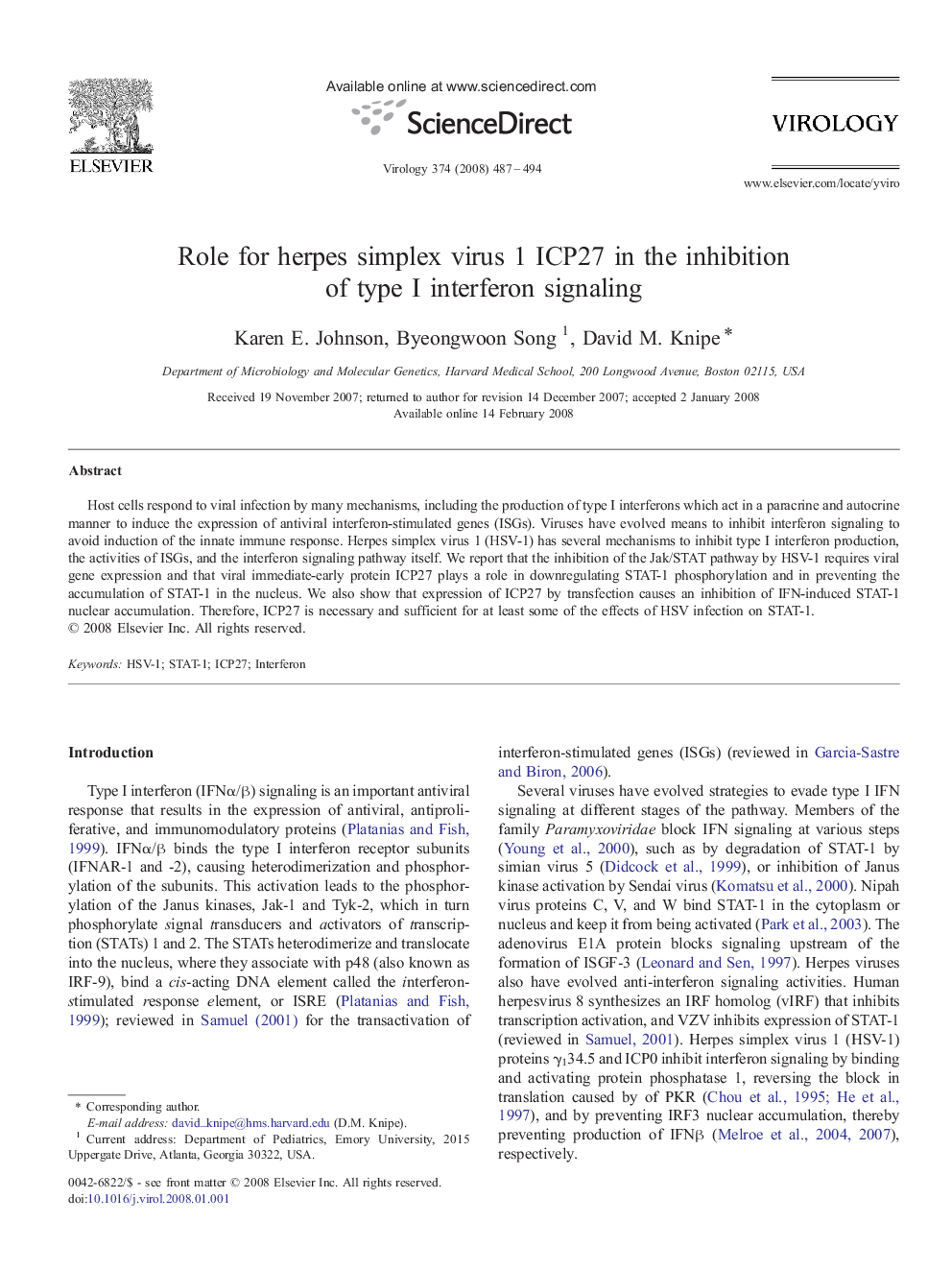| Article ID | Journal | Published Year | Pages | File Type |
|---|---|---|---|---|
| 3426139 | Virology | 2008 | 8 Pages |
Host cells respond to viral infection by many mechanisms, including the production of type I interferons which act in a paracrine and autocrine manner to induce the expression of antiviral interferon-stimulated genes (ISGs). Viruses have evolved means to inhibit interferon signaling to avoid induction of the innate immune response. Herpes simplex virus 1 (HSV-1) has several mechanisms to inhibit type I interferon production, the activities of ISGs, and the interferon signaling pathway itself. We report that the inhibition of the Jak/STAT pathway by HSV-1 requires viral gene expression and that viral immediate-early protein ICP27 plays a role in downregulating STAT-1 phosphorylation and in preventing the accumulation of STAT-1 in the nucleus. We also show that expression of ICP27 by transfection causes an inhibition of IFN-induced STAT-1 nuclear accumulation. Therefore, ICP27 is necessary and sufficient for at least some of the effects of HSV infection on STAT-1.
